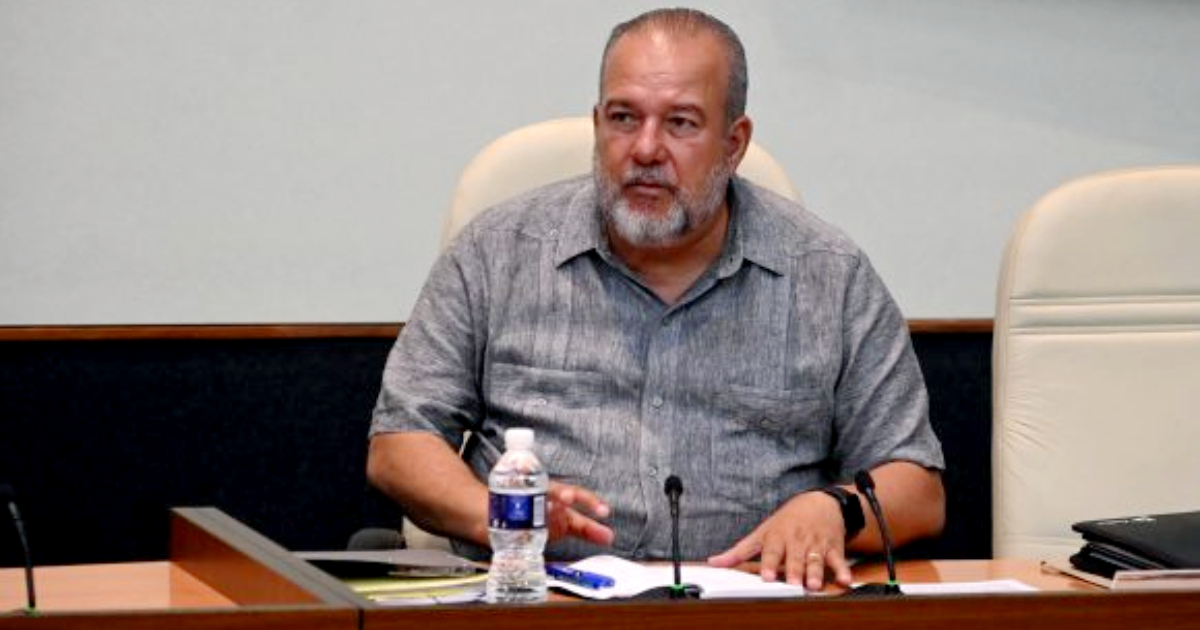
Many private business owners in Cuba resist developing their activity according to the dictates of the government and They reject the obligation to make payments through electronic channels in order to have the necessary cash to make payments and other operations.
Meeting at the Palace of the Revolution, the minister-president of the Central Bank of Cuba (BCC), Joaquín Alonso Vázquez, he explained to the prime minister, Manuel Marrero Cruz, that the “new economic actors” offer “resistance to the measure” of banking transactions for collections and payments, approved by the Cuban regime.
Alonso Vázquez explained to Marrero Cruz that “they have detected new forms of management that, having enabled electronic payment channels, require the population to do so in cash.” which constitutes a resistance to measure”.
There is nothing that upsets the Cuban regime as much as finding opposition to its dictates. So this Tuesday the prime minister warned Cubans that “no one can deny electronic payment", as highlighted in headlines by the official media Cubadebate.
“Where the conditions are created, no economic actor can deny clients payment for services, products, and other commercial and financial operations through the various electronic channels used in Cuba,” Marrero Cruz insisted.
In its desire for control over the “new economic actors”, The Cuban regime imposed a “gradual” process of banking which, in practice, has been an obstacle to the circulation of cash, further overheating the shortage of cash in circulation and triggering inflation and the price of the dollar in the informal market. The majority perception of Cubans is that they suffer a "financial corralito".
“No one can refuse a client to pay them electronically“warned the prime minister. And when it says “nobody”, the order has to be followed by the owners of the MSMEs to “the forklift drivers”, to whom the totalitarian regime also intends to impose banking “immediately”.
They spoke this Tuesday at the Palace of the Revolution about continuing to explain by all means (they are all pro-government) the “benefits” of the banking process, which Cubans, apparently, have not yet understood.
The alarms are already beginning to sound in the corridors of power of the regime and speeches like those of Marrero Cruz are already appearing, which do not have economic arguments behind them, but do have a repressive drive that always goes ahead in a dictatorship.
If, despite so many explanations and pedagogy, Cubans “resist” bankization, they already know what to expect. If an owner of a MSME, a restaurant or a fries stand has a data connection on their mobile phone or has internet at hand, they will not be able to choose to charge for their services in cash; will be required to accept electronic paymentsWhether they like it or not, whether it benefits them or not.
Whether observe the behavior of economic actors in a developed country like Spain, it can be seen that, by law, Establishments are not required to accept card or electronic payment, up to a maximum amount of 1,000 euros..
“With current regulations, no business is obliged to accept card payments. Establishments can choose whether or not to equip themselves with a dataphone or POS terminal,” explains the Organization of Consumers and Users of Spain.
The latest report on payment methods prepared by the Bank of Spain was clear: cash is still in the lead and three out of five people use it daily. And the banks, the internet connection, the administration and the economic authorities of the country work.
What do you think?
SEE COMMENTS (8)Filed in: